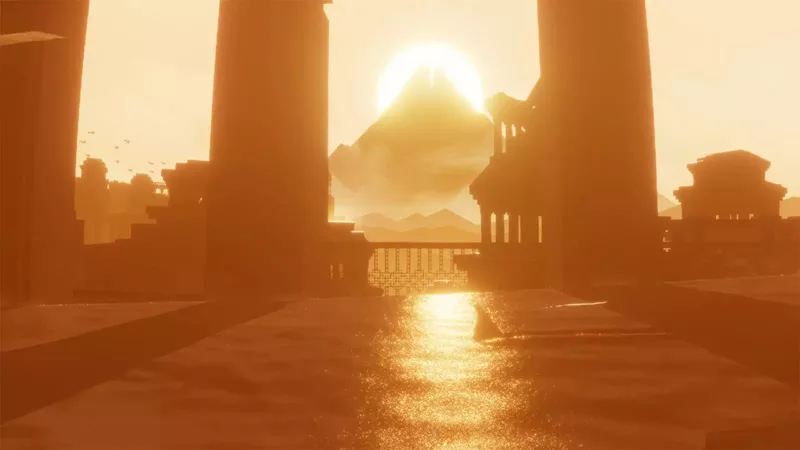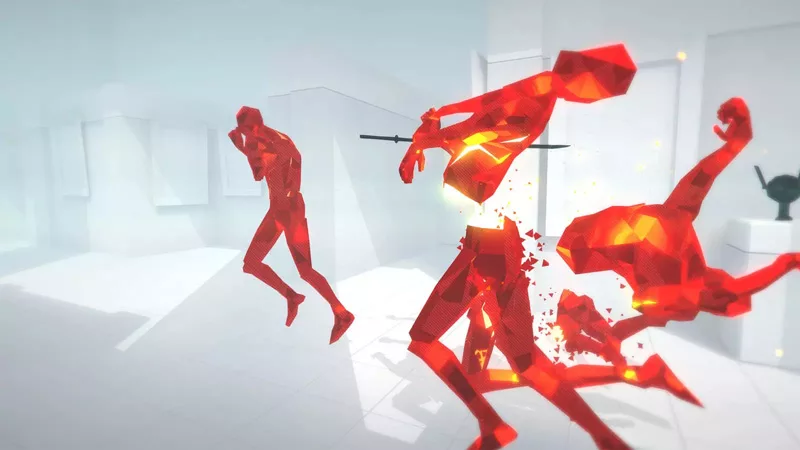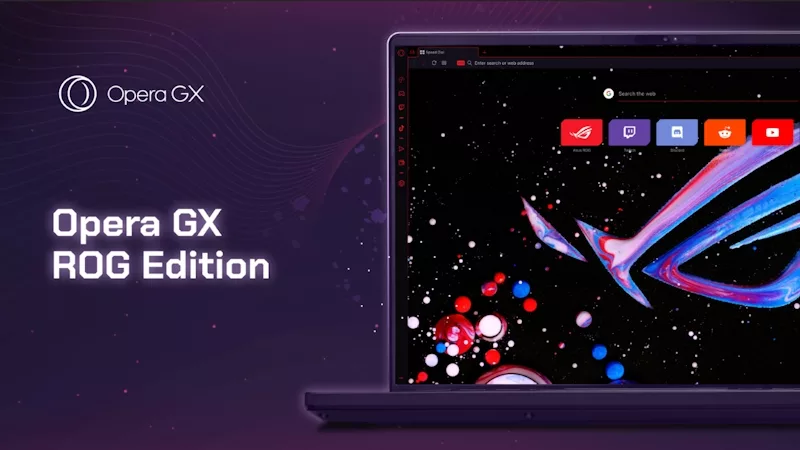Star Citizen: 10 years of pushing the boundaries of what a game can be
I exit my Eclipse, floating in zero gravity to cross the black and enter the floating salvage ship. Once inside, I follow a trail of dead bodies and locate the main elevator, trying to track down my target. Hiding in the cargo bay are piles of looted gear and a small army of pirates, defending the ship for the Nine Tails gang. With the help of my assault rifle and a few med pens, I clear the ship of enemies, head to the bridge, and activate the self-destruct before exiting and leaving the area. One less pirate nest in the ‘verse, and a few more aUEC in my wallet. I point my ship towards Microtech and enter quantum to unload my new found loot and restock with ammo, ready to take on the next mission.
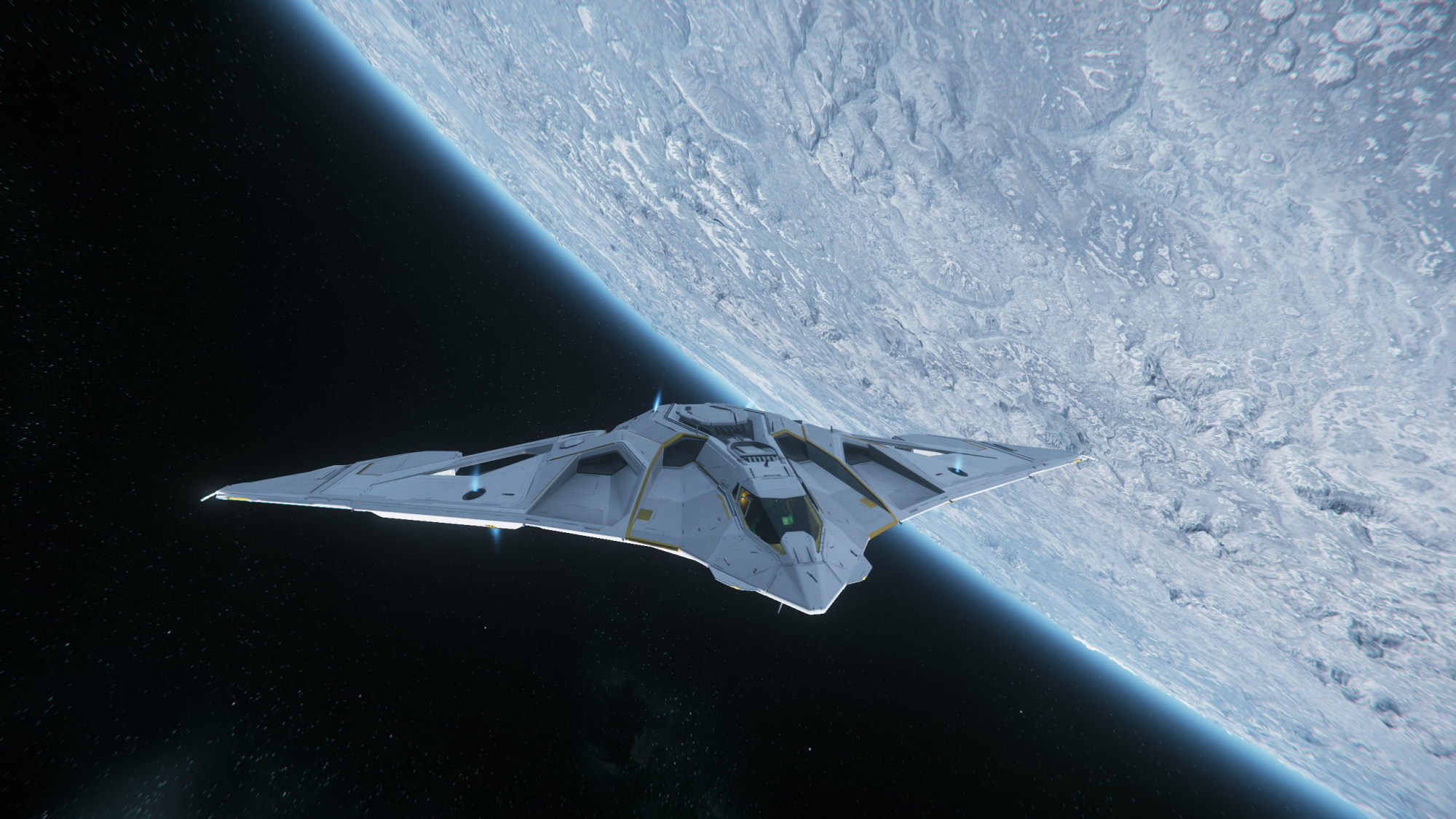
Image source: Risto Risto
First announced on October 12, 2012, Star Citizen started its life as a Kickstarter campaign with a successful $2 million funding drive. Unlike most traditional AAA titles that rely on a publisher, Star Citizen decided to rely almost exclusively on crowdfunding to support development, and a decade later is now the largest crowdfunded game in history, with more than $500 million dollars raised at the time of writing. But what inspired more than 4 million players to pledge hundreds of millions of dollars towards the development of a game that is still in an Alpha state after a decade?
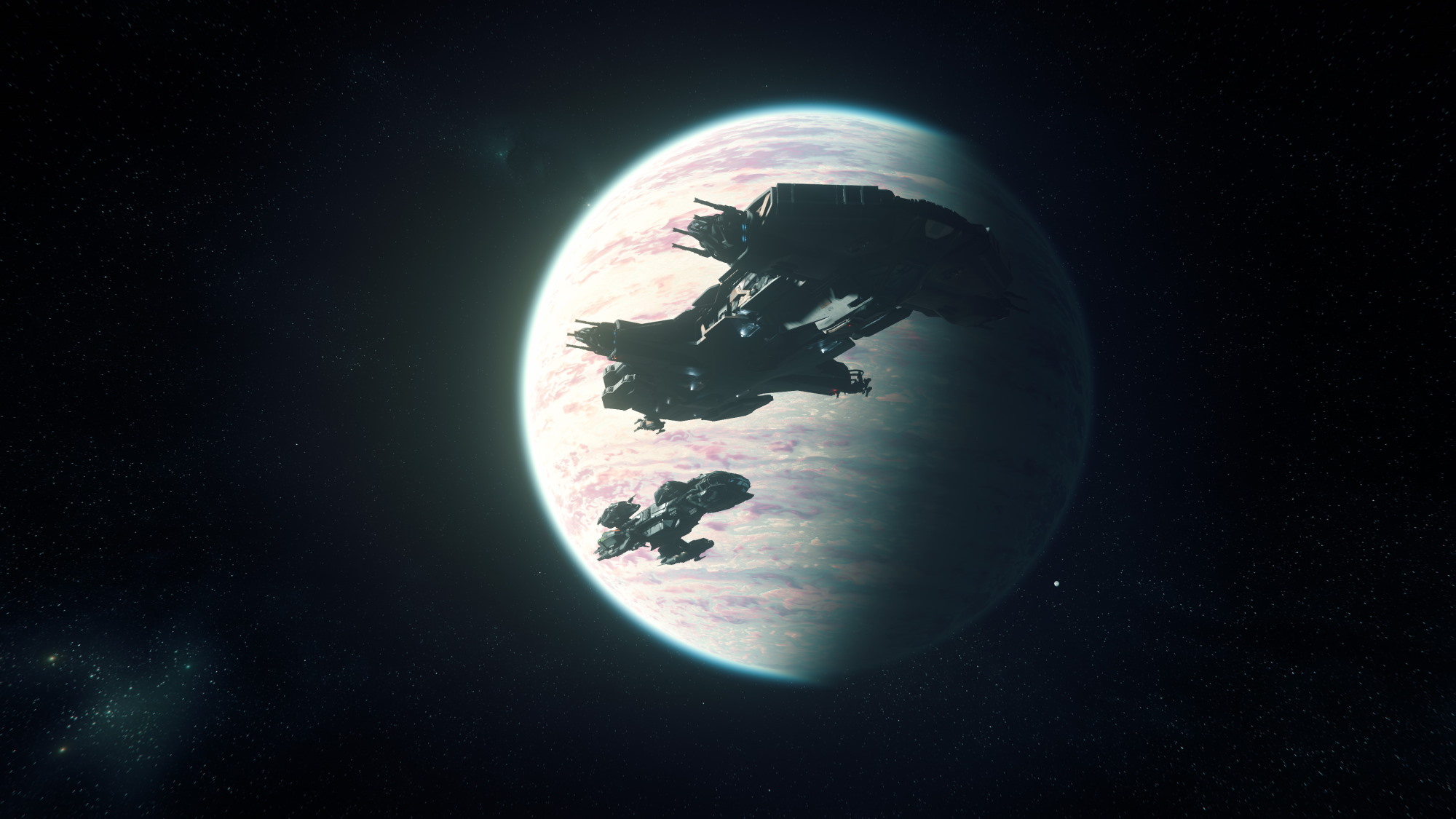
Image source: Risto Risto
Ostensibly, Star Citizen is a space simulation game, but I think of it as the ultimate dream game for any fan of science fiction. No matter what draws you to the sci-fi genre, Star Citizen likely has plans to include it in-game. A hundred star systems with multiple planets, faster than light travel, transition from orbit to manual landing on a planet, hospital ships, mining, exploration, cargo running, piracy, prisons, the list goes on. Some of these systems only exist on design documents, while others are fully functional and ready to play in the Alpha version of the game. Every time I launch Star Citizen and dip my toe into the universe, I’m blown away by both the scope and level of detail that the developers dedicate to each facet of this space epic.
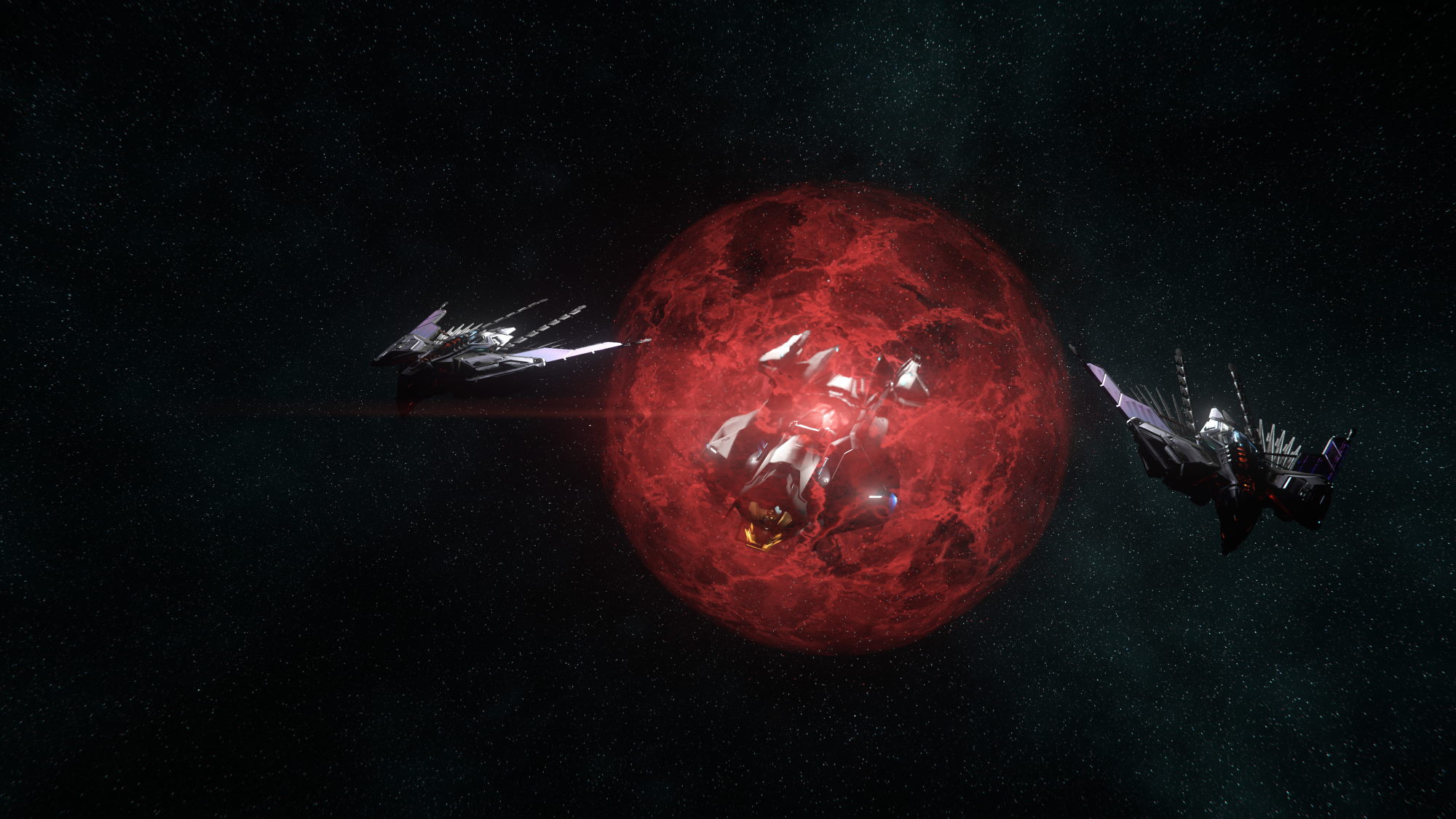
Image source: Risto Risto
My first real taste of Star Citizen came many years ago with the launch of the “Hangar Module”. This was the first time that the early crowdfunding campaign transitioned from just static photos and concept art of the ships that gamers were pledging for, into a downloadable and playable program that allowed us to walk around, enter, and ogle the ships that we owned. At the time I owned a Constellation Andromeda, and I was blown away when the ship was translated perfectly, almost pixel for pixel matching the concept art, and realized as a 3D object. The Connie is arguably as iconic to Star Citizen as the Millenium Falcon is for Star Wars or the Normandy for Mass Effect. Walking around, using the elevator, and striding through the halls as a player character, I was able to get a true sense of the scale of the Connie compared to a human sized player, and what a 61 meter ship felt like to walk through. I was hooked.
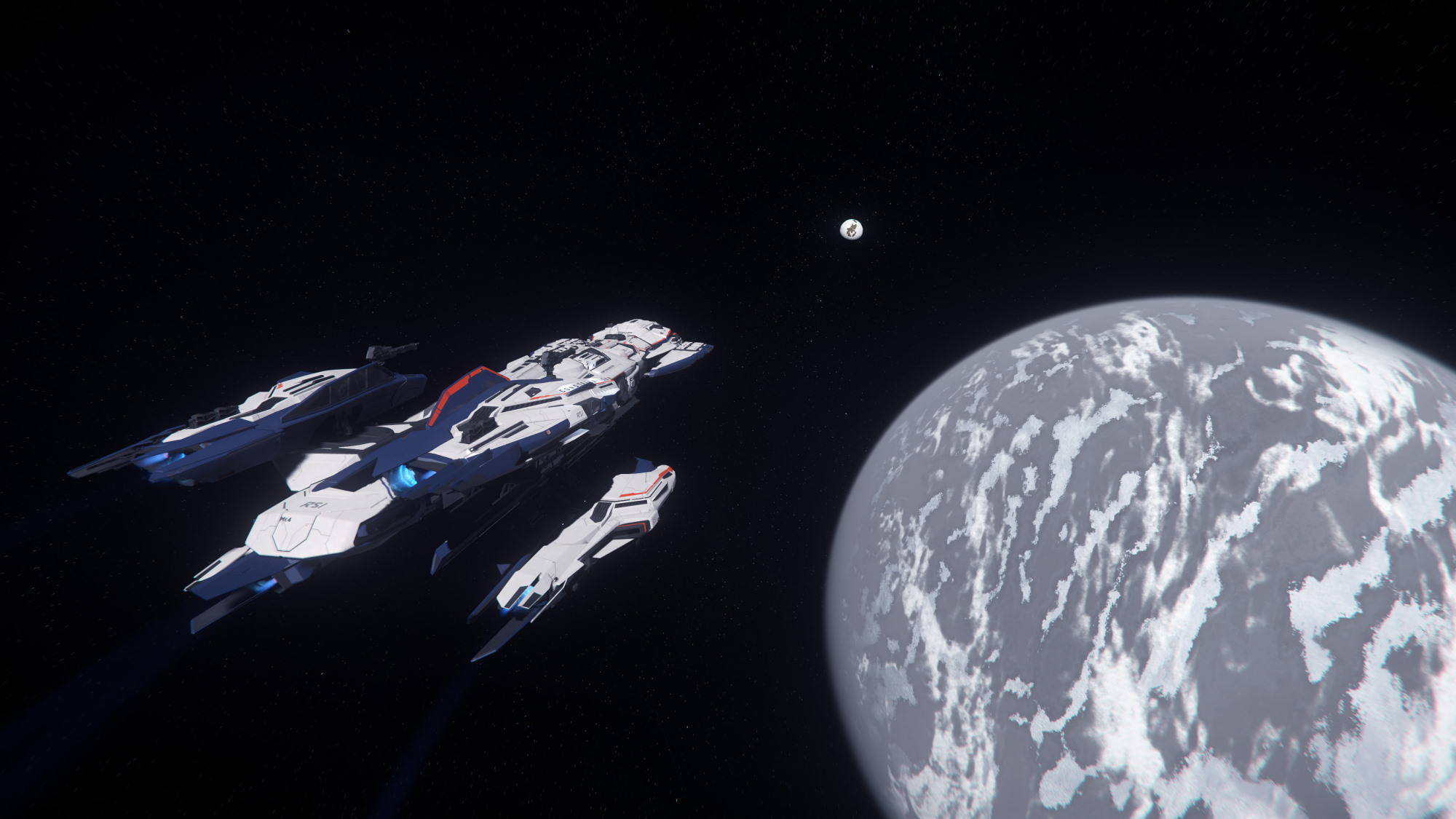
Image source: Risto Risto
Star Citizen made another huge step with the introduction of procedural planet tech and the ability to visit multiple planets in the Stanton system. With a solar system and planets at approximately 1:4 scale, the universe began to feel much more lifelike. A trip from planet to planet can be up to ten minutes, making me feel like a miner out on a remote claim in the Old West. When traveling to the Aaron Halo or a quiet corner of Lyria to try my hand at quantanium mining feels like a true journey, arriving somewhere new feels like a destination, giving weight to the space stations and ground landing zones that populate the Stanton system. Whether I’m riding the metro in the industrial wasteland of Lorville, or enjoying the sunset in the cloud city of Orison, Star Citizen has a sense of scale that never fails to impress.
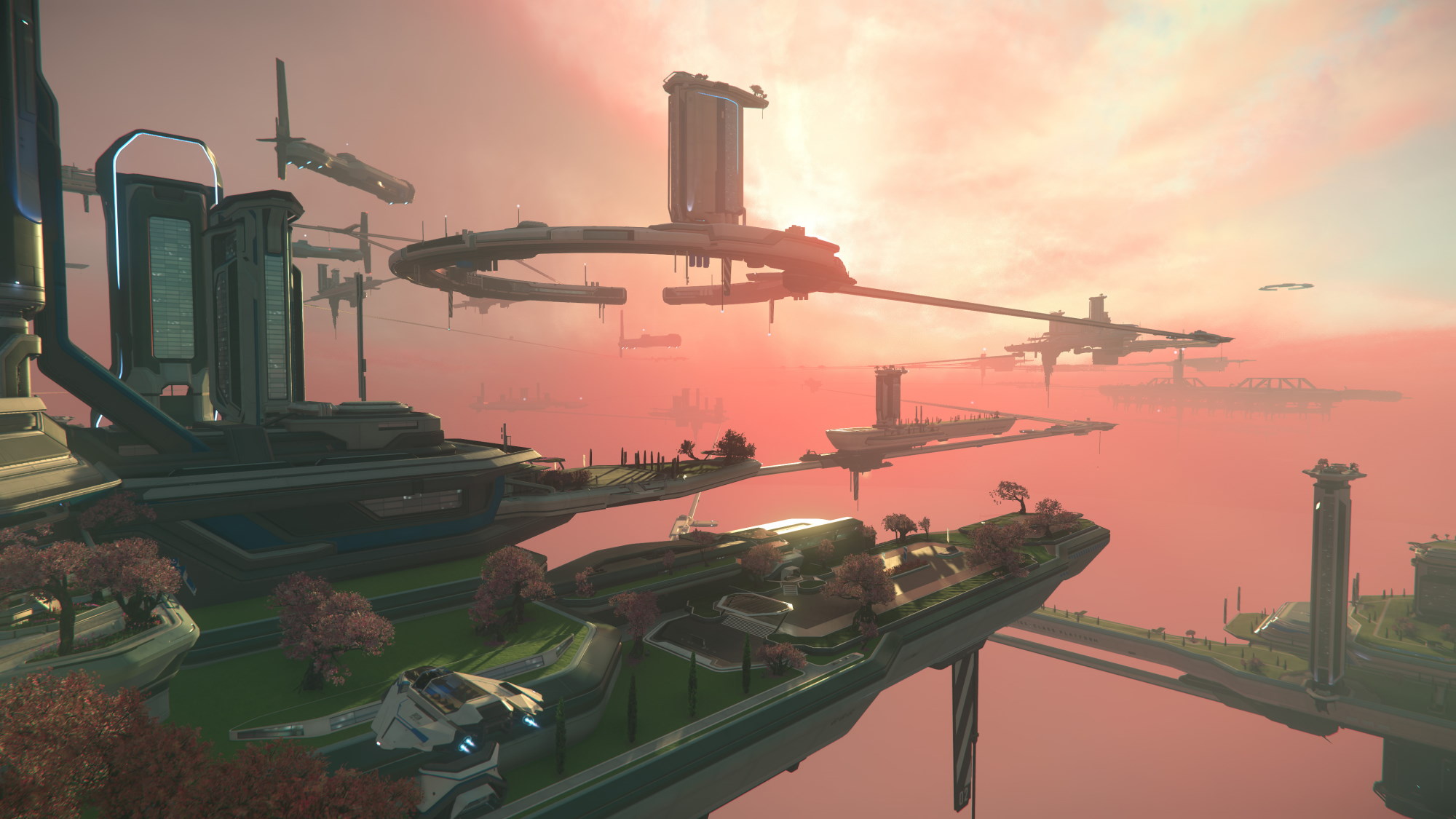
Image source: Risto Risto
One thing that hasn’t changed since the release of the very first hangar module is the majesty and magic of Star Citizen’s ships. The in-universe ship manufacturers each have their own design languages, lore, and sometimes a specialty that help to make each ship feel unique, even within a single manufacturer. Origin Jumpworks is a luxury ship manufacturer with sleek exteriors and extravagant interior designs, Musashi Industrial and Starflight Concern (MISC) is known for their distinctive bare metal hulls and utilitarian designs, while Drake Interplanetary is acknowledged as the shipmaker of choice for those who choose to operate outside the law. I have a few ships from most manufacturers, but I have a soft spot in my heart for the design language of Aegis Dynamics, who specialize in military ships from the single seat Gladius to the mighty Javelin destroyer. The Javelin is the largest player ownable ship in the game, with a maximum crew of 80 people and measuring in at 480 meters long, and I quickly got lost on the tour even with signage.
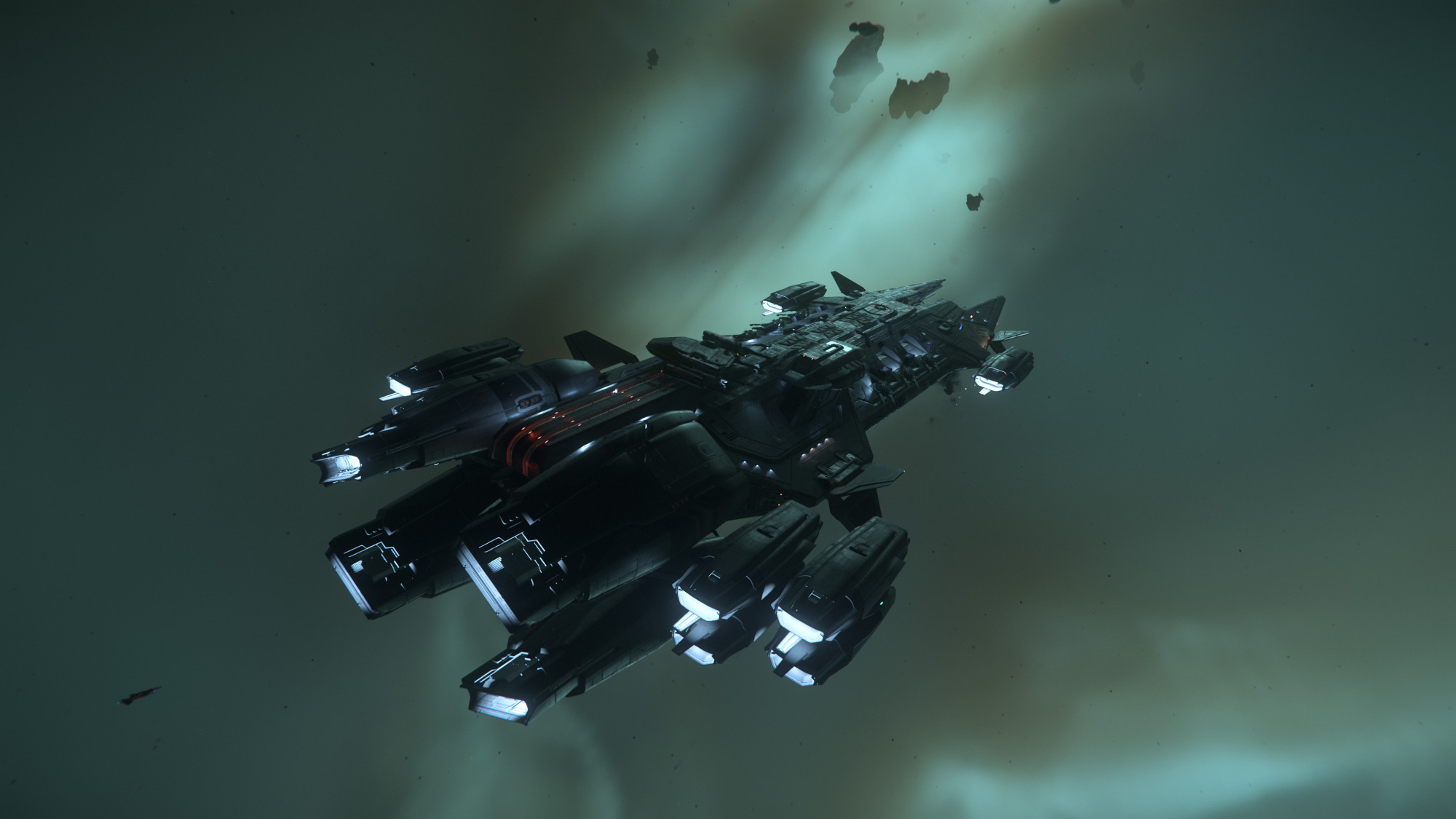
Image source: Risto Risto
Star Citizen is the ultimate space sandbox for gamers who were born too late to live through the Apollo missions, but too early for interstellar colonization. Bounty hunting serves as an outlet for those who dream of ship- or ground-based combat. For more peaceful gamers, cargo running, ship-to-ship refueling, and mining all offer plenty of cash without ever needing to launch a missile. Just like most games, any of these professions are more fun with friends, and Star Citizen offers plenty of opportunity to join up with others and take the galaxy by storm. I’m a confident FPS player but not the best pilot, so I happily hop into someone’s turret on a multi-crew ship when I have the opportunity. Whether we’re clearing out caves, bunkers, or doing a long range bounty hunt, all of my best experiences in Star Citizen end with laughing together with my buddies on Discord about it.
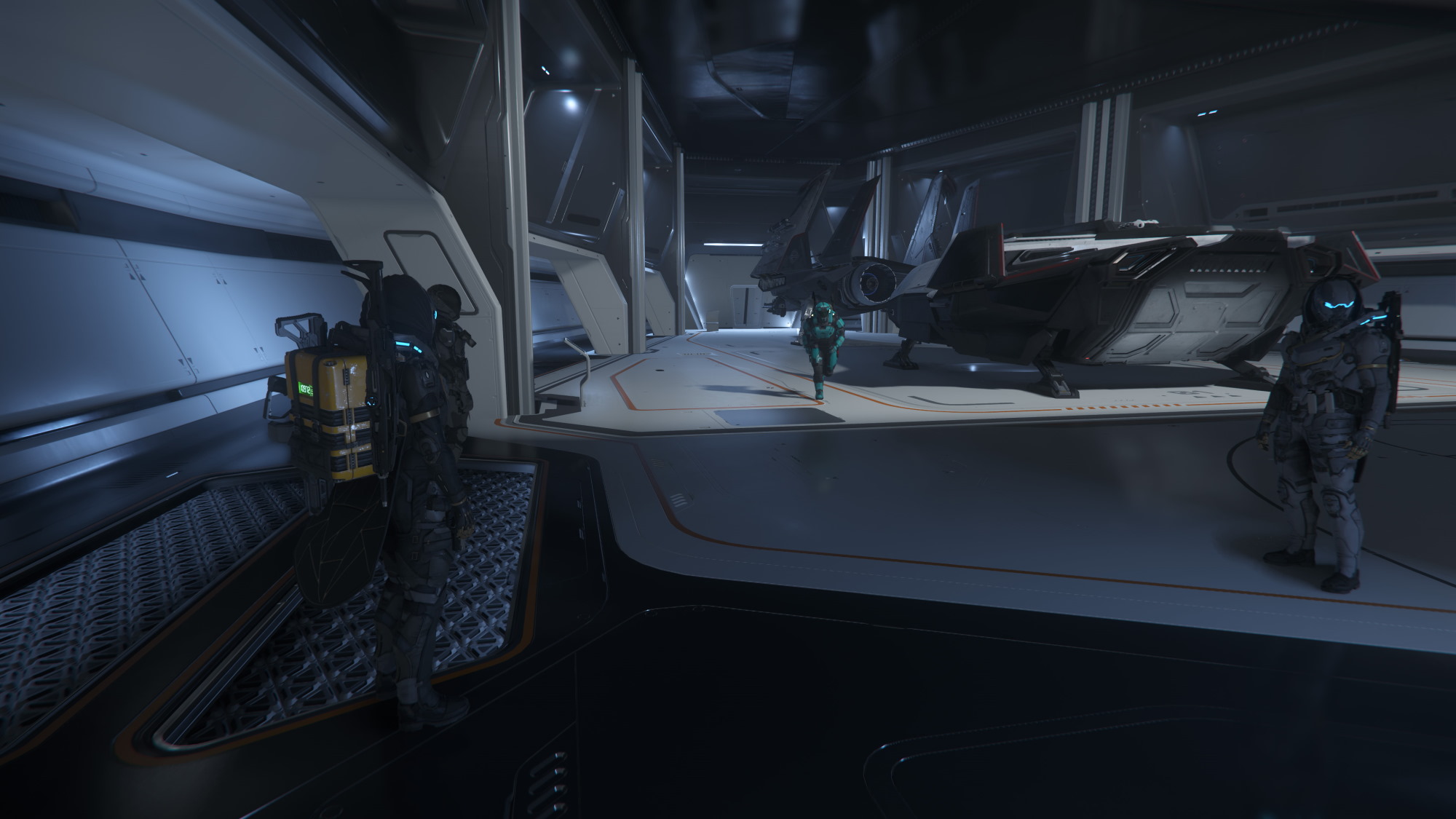
Image source: Risto Risto
Star Citizen captured my heart in 2014 and hasn’t loosened its grip ever since. While the finished game is still a few years away, new features are introduced all the time, further deepening the universe and gameplay of a title that already set a new standard for fidelity. If you want to test the waters before purchasing a ship package, Star Citizen holds frequent free fly weeks, which can be a great chance to test out a few ships and visit Stanton without spending a cent. I hope to see you in the ‘verse.
